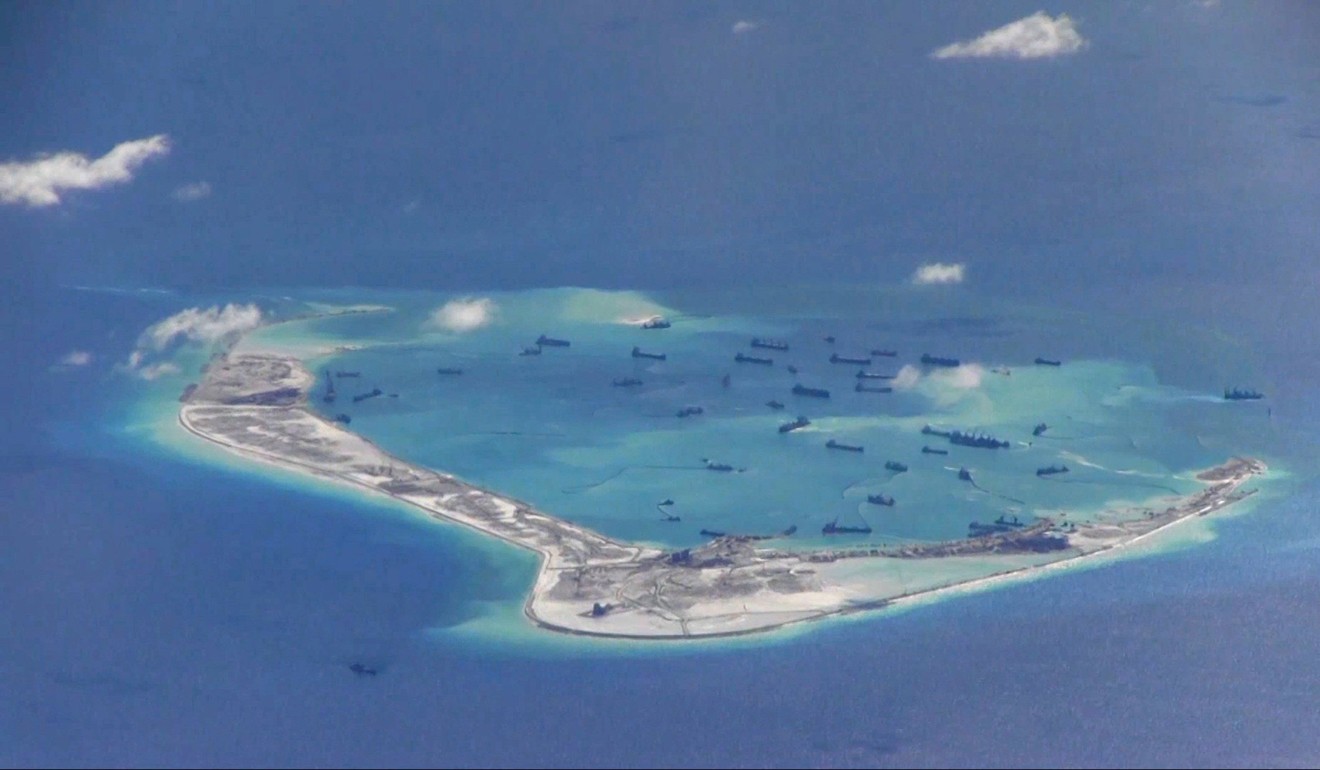From SCMP I guess they want to increase their situation awareness
China plans to send up 10 more satellites from the southern island of Hainan over the next three years to plug surveillance gaps over the South China Sea, a move observers say is meant to consolidate Beijing’s control of the contested waters.
When completed, the satellite network would be able to monitor the South China Sea around the clock and analyse every object in the waters in detail, including the structure of vessels,
Hainan Daily quoted Li Xiaoming, from the Sanya Institute of Remote Sensing and Digital Earth, as saying.
The plan surfaced on Friday after a US think tank released satellite images showing what it said was more Chinese infrastructure built on seven artificial South China Sea islands.
According to state-run Xinhua, China will launch the satellites, including more sophisticated “hyperspectral” and “synthetic aperture radar” satellites, by 2021 to conduct round-the-clock remote-sensing over the busy waterway.
Collin Koh, a maritime security specialist at Singapore’s Nanyang Technological University, said various technical and climatic factors prevented China’s existing satellite system from giving complete coverage of the disputed waters.
“The new satellite remote sensing plan ... constitutes just a facet of the overall efforts China has been making in improving its sense-making ability in the South China Sea,” Koh said.
A Beijing-based remote sensing expert said the new satellites would back up the existing network operated by the military and “could be called into military service when needed”.
China has expanded surveillance and military facilities in the South China Sea amid competing claims from the Philippines, Vietnam, Taiwan, Brunei and Malaysia.
The Washington-based Asia Maritime Transparency Initiative said China had added 29 hectares of infrastructure to seven artificial South China Sea islands since early last year.
It said the build-up suggested Beijing would develop the bigger outposts into fully-functioning air and naval bases.
Greg Poling, the initiative’s director, said China was making the most of Philippine President Rodrigo Duterte’s conciliatory stand on the territorial dispute and a US administration preoccupied by North Korea’s nuclear threat and trade disputes with China.
“[The construction has] got off the front pages, but we shouldn’t confuse that with a softening in China’s pursuit of its goals. They are continuing all the construction they want,” Poling said.
Beijing has also placated the Association of Southeast Asian Nations (Asean) by agreeing to start talks on a long-awaited code of conduct for the waters.
Analysts said Beijing was exploiting the relative calm to quietly strengthen its physical control of the waters.
“Beijing must have also recognised that the current peace – compared to the ramped up tensions last year – could be temporary or transient, so it’ll pay to continue to fortify its physical hold of the area,” Koh said.
“Now that China appears to have managed to align Asean more towards its thinking about managing the disputes for now, it would seek to exploit the anticipated downplayed responses.”
Dai Fan, a Southeast Asian affairs analyst from Jinan University in Guangzhou, said the build-up and fortifications were more about consolidating China’s control of the waters than intimidating a specific rival claimant.
“China does not wanted to be confined to near shore and wants to go further into the high seas and that build-up will help Beijing take control and compete with more powerful maritime nations like the US and Japan,” Dai said.
But the new construction would be a concern for all Asean nations and push them closer to other countries like the United States, Clarita Carlos, an international affairs expert from the University of the Philippines, said.
“None of us want to see further militarisation of the islands,” Carlos said.

